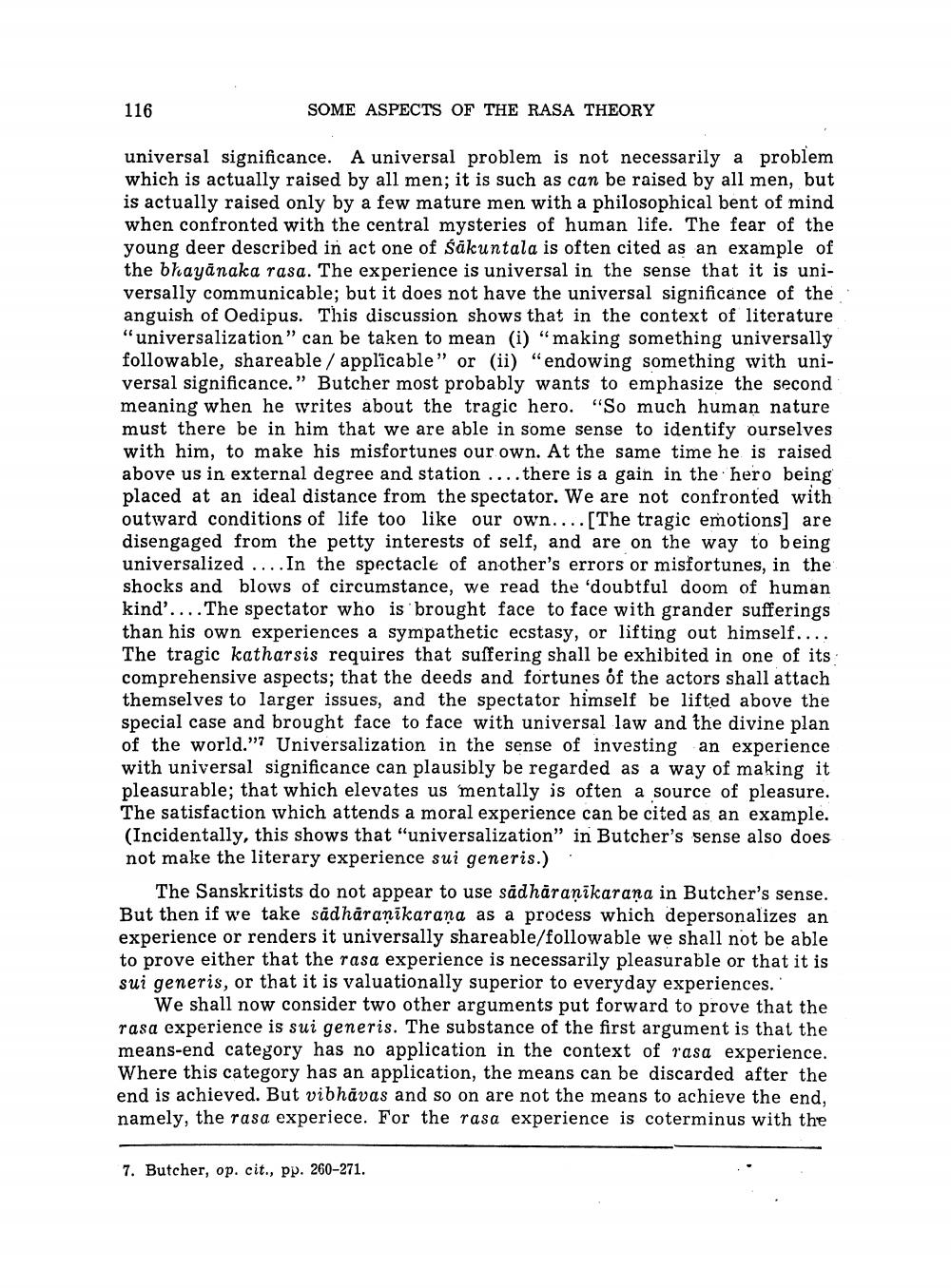________________
116
SOME ASPECTS OF THE RASA THEORY
universal significance. A universal problem is not necessarily a problem which is actually raised by all men; it is such as can be raised by all men, but is actually raised only by a few mature men with a philosophical bent of mind when confronted with the central mysteries of human life. The fear of the young deer described in act one of Sakuntala is often cited as an example of the bhayānaka rasa. The experience is universal in the sense that it is universally communicable; but it does not have the universal significance of the anguish of Oedipus. This discussion shows that in the context of literature "universalization" can be taken to mean (i) "making something universally followable, shareable / applicable" or (ii) "endowing something with universal significance." Butcher most probably wants to emphasize the second meaning when he writes about the tragic hero. "So much human nature must there be in him that we are able in some sense to identify ourselves with him, to make his misfortunes our own. At the same time he is raised above us in external degree and station .... there is a gain in the hero being placed at an ideal distance from the spectator. We are not confronted with outward conditions of life too like our own.... [The tragic emotions] are disengaged from the petty interests of self, and are on the way to being universalized .... In the spectacle of another's errors or misfortunes, in the shocks and blows of circumstance, we read the 'doubtful doom of human kind'.... The spectator who is brought face to face with grander sufferings than his own experiences a sympathetic ecstasy, or lifting out himself.... The tragic katharsis requires that suffering shall be exhibited in one of its comprehensive aspects; that the deeds and fortunes of the actors shall attach themselves to larger issues, and the spectator himself be lifted above the special case and brought face to face with universal law and the divine plan of the world." Universalization in the sense of investing an experience with universal significance can plausibly be regarded as a way of making it pleasurable; that which elevates us 'mentally is often a source of pleasure. The satisfaction which attends a moral experience can be cited as an example. (Incidentally, this shows that "universalization" in Butcher's sense also does not make the literary experience sui generis.).
The Sanskritists do not appear to use sädhäranikarana in Butcher's sense. But then if we take sädharanikarana as a process which depersonalizes an experience or renders it universally shareable/followable we shall not be able to prove either that the rasa experience is necessarily pleasurable or that it is sui generis, or that it is valuationally superior to everyday experiences.
We shall now consider two other arguments put forward to prove that the rasa experience is sui generis. The substance of the first argument is that the means-end category has no application in the context of rasa experience. Where this category has an application, the means can be discarded after the end is achieved. But vibhāvas and so on are not the means to achieve the end, namely, the rasa experiece. For the rasa experience is coterminus with the
7. Butcher, op. cit., pp. 260-271.




